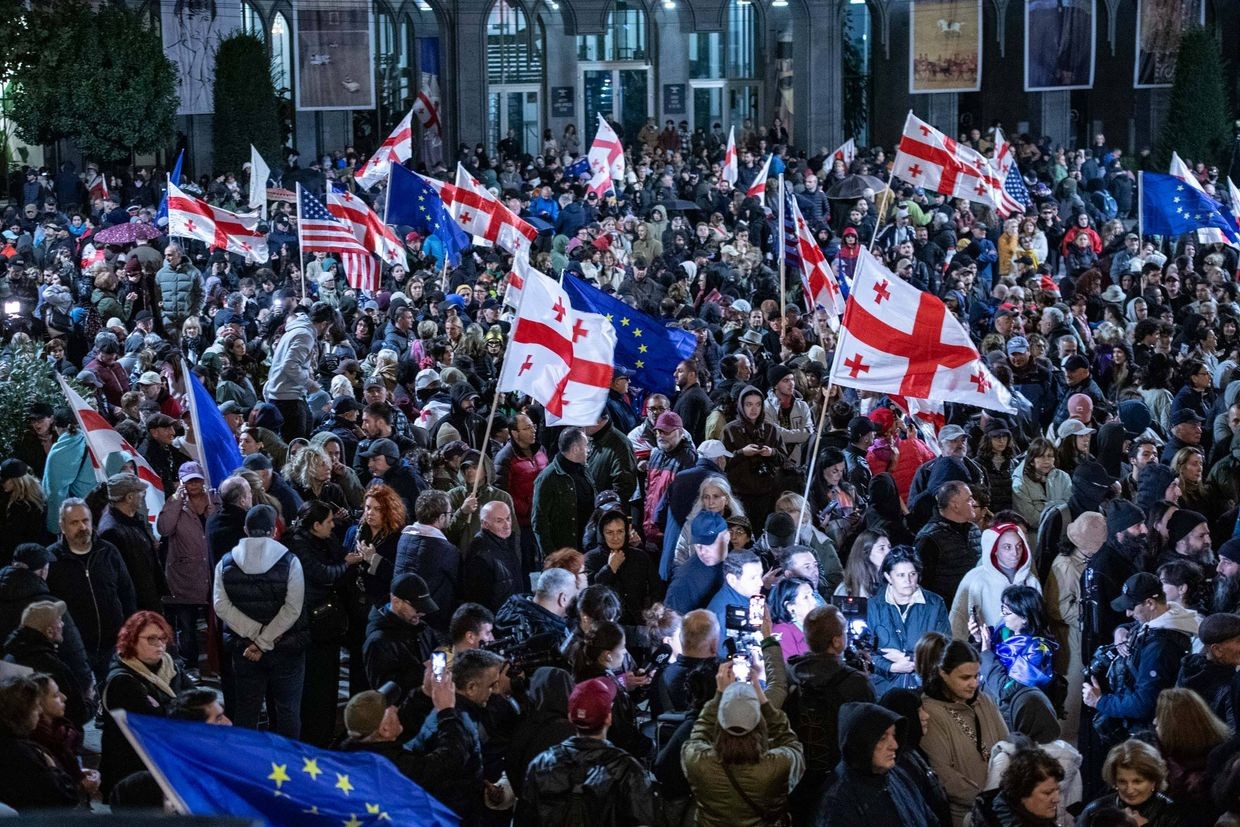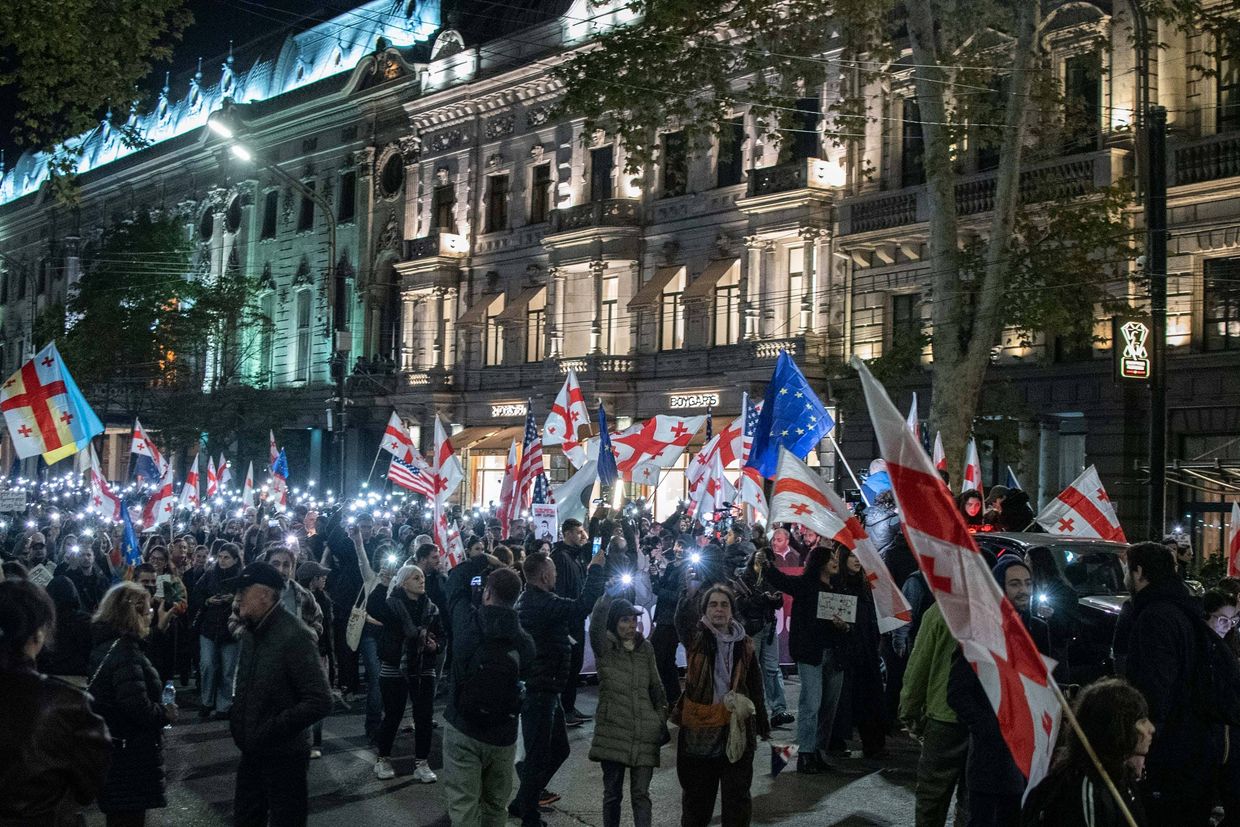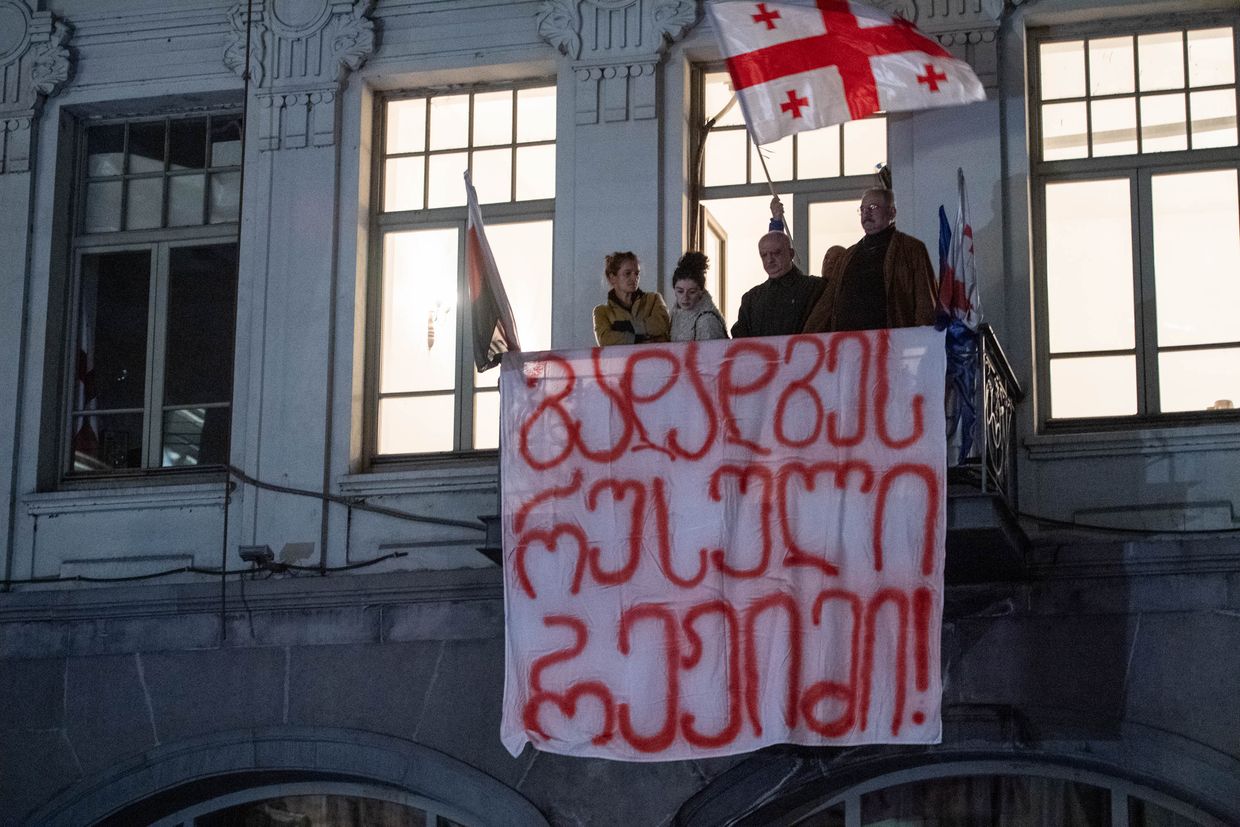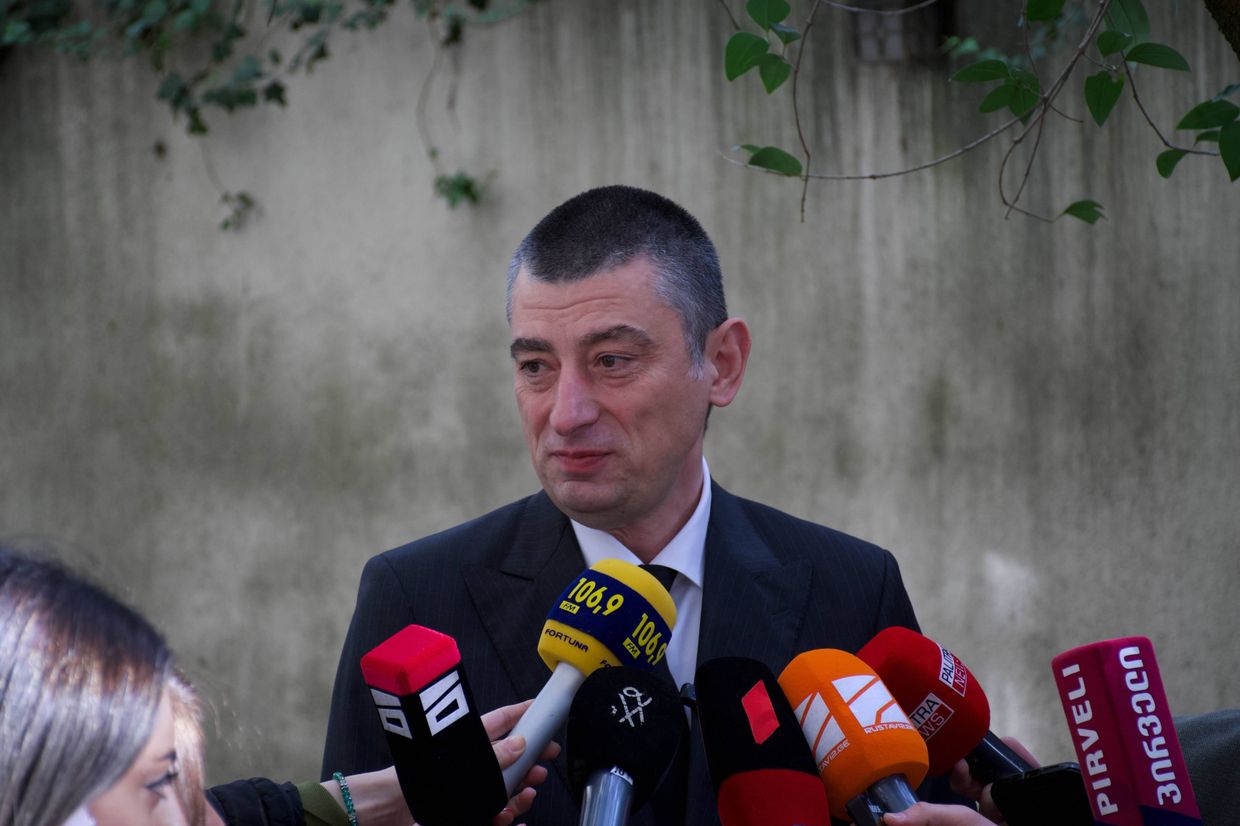
On Sunday, thousands of anti-government demonstrators marched through central Tbilisi to mark the anniversary of the disputed 2024 parliamentary elections, through which the ruling Georgian Dream party retained power.
The march, titled ‘To the End, Until Victory’, set off from Republic Square in the evening and concluded at the parliament, the traditional site of anti-government demonstrations.
The event had been planned over two weeks by a number of opposition political groups and activists. Demonstrators carried Georgian flags as well as those of the country’s traditional partners, the EU and the US.

‘[One] year after Georgian Dream decided not only to take away our votes but also our freedom and future, and thought we would disperse, we are here to say that we have not gone anywhere’, said Levan Tsutskiridze, leader of the opposition Freedom Square party, during his speech at the rally.
He added that the struggle continues until the ‘people’s demands’ are met.
‘Let this government of bandits resign! Release the innocent people! Hold free elections!’ he said.
Former President Salome Zourabichvili also spoke at the rally, saying that over the past year Georgian Dream has failed to secure legitimacy. She praised the ‘extraordinary solidarity’ within anti-government circles and asserted that ‘the regime has already lost, its days are numbered’.

‘Let our hearts hold on a little longer; soon there will be a real, final victory: new elections, a new society, a new political space that we need’, she added.
Tamar Chergoleishvili, leader of the opposition Federalists party, called for better-organised protests aimed at ‘suffocating the regime to the end’ and urged people to register on the Strengthen Resistance website, which opposition parties launched in July.
‘If we stand together — around values, not parties or personalities — we will certainly carry this through to the end’, she said.
According to the official results of the 26 October 2024 elections, the ruling Georgian Dream party won the majority and extended its 12 years-long rule by four more years.
However, amid reports of widespread irregularities, the legitimacy of the vote was called into question, and all major opposition groups declared a parliamentary boycott. All of them continue the boycott, except for former Prime Minister Giorgi Gakharia’s party For Georgia, which announced on 20 October its decision to participate in parliament.

The disputed elections were followed by street protests, which were further intensified on 28 November, one month after the vote, when the ruling party suspended Georgia’s EU membership bid ‘till 2028’.
Dozens of demonstrators were arrested during the ongoing protests, many of whom have already been sentenced. Their release is one of the main demands of the ongoing rallies.
The controversy over the elections, combined with restrictive laws adopted by Georgian Dream — targeting civil society, media, and the political opposition — as well as brutal police violence against anti-government demonstrators and increasingly confrontational rhetoric toward both domestic and international critics, has severely strained Georgia’s relations with its traditional partners.
Over the past year, numerous countries, including the US, UK, and EU member states, have suspended various forms of cooperation with the Georgian authorities, accompanied by individual sanctions imposed on officials of Georgian Dream.

This article was translated into Armenian and republished by our partner CivilNet.










